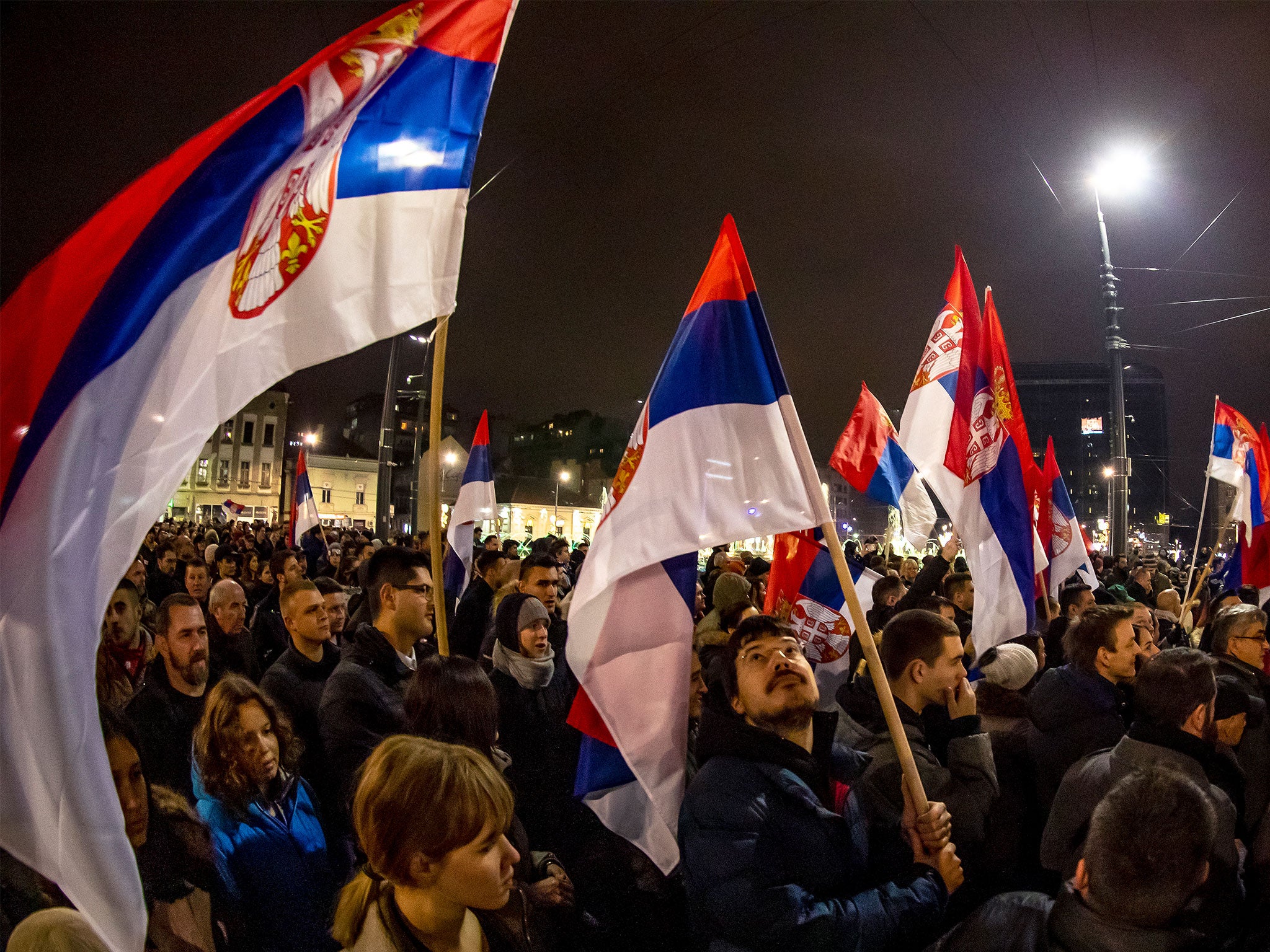Serbia protests: Demonstrations in Belgrade over alleged government corruption enter fourth week
President claims he is willing to talk to opposition leaders as thousands march on streets

Your support helps us to tell the story
From reproductive rights to climate change to Big Tech, The Independent is on the ground when the story is developing. Whether it's investigating the financials of Elon Musk's pro-Trump PAC or producing our latest documentary, 'The A Word', which shines a light on the American women fighting for reproductive rights, we know how important it is to parse out the facts from the messaging.
At such a critical moment in US history, we need reporters on the ground. Your donation allows us to keep sending journalists to speak to both sides of the story.
The Independent is trusted by Americans across the entire political spectrum. And unlike many other quality news outlets, we choose not to lock Americans out of our reporting and analysis with paywalls. We believe quality journalism should be available to everyone, paid for by those who can afford it.
Your support makes all the difference.Thousands of Serbians protested against the country’s president Aleksandar Vucic and his ruling party at a demonstration in downtown Belgrade.
They chanted “Vucic theif” as they marched peacefully through the centre of the Serbian capital on Saturday, the fourth such protest in as many weeks.
Demonstrators demanded media freedoms, as well as an end to attacks on journalists and opposition politicians.
Backers of the Alliance for Serbia, an opposition grouping of 30 parties and organisations, say Mr Vucic is an autocrat and his Progressive Party is corrupt, which its leaders vehemently deny.
The president claimed in an interview with pro-government Studio B TV during the protests he was ready to meet with opposition leaders to discuss their demands.
“I am ready to look at what causes dissent of the people,” he said, after being jeered by a group of protesters as he entered the television station building.
The overtures marked a change in tone for Mr Vucic, who had earlier suggested he was willing to test his party's popularity in a snap vote.
Vuk Jeremic, a former foreign minister and the head of the small People's Party, part of the alliance, said the opposition would boycott any election.
“There will be no legitimate elections in Serbia with the participation of the opposition until after normal conditions for elections and living are created,” Mr Jeremic said.
According to a poll by the Belgrade-based CESID election watchdog in October, Mr Vucic's party enjoys the backing of 53.3 per cent of electorate, leaving other parties trailing far behind.
If the opposition ran as an alliance, rather than individual parties, they could only be expected to count on around 15 per cent of the vote. Their joint participation in a vote has also yet to be agreed.
The Progressive Party-led ruling coalition has a comfortable majority of 160 deputies in the 250-seat parliament, with the next national election not due until 2020.
Major opposition protests have been relatively rare in Serbia since the popular unrest that ousted former strongman Slobodan Milosevic in 2000.
Most of current opposition leaders served in successive pro-Western coalitions that led Serbia between 2000 and 2012 when the Serbian Progressives forged a coalition with Milosevic's Socialists and came to power.
A nationalist firebrand during the violent collapse of the former Yugoslavia in the 1990s, Mr Vucic later embraced pro-European values and set Serbia's membership in the European Union as the country's strategic goal. He also maintains close ties with Russia and China.
Additional reporting by Reuters
Subscribe to Independent Premium to bookmark this article
Want to bookmark your favourite articles and stories to read or reference later? Start your Independent Premium subscription today.
Join our commenting forum
Join thought-provoking conversations, follow other Independent readers and see their replies
Comments